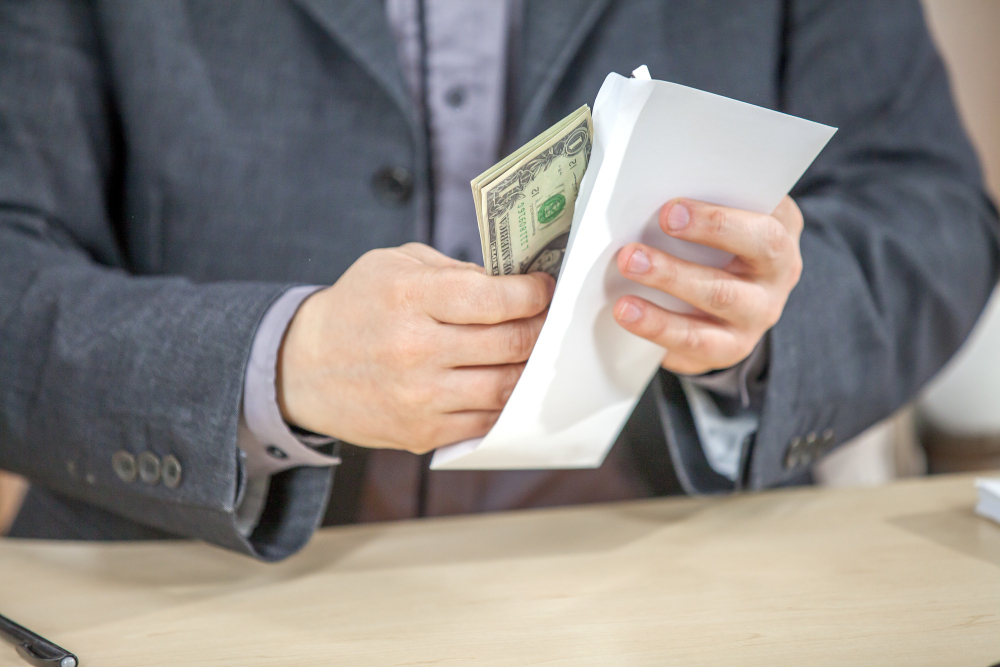Typical Bail Amounts for Common Crimes in Florida

Being arrested and charged with a crime is a stressful and confusing experience. One of the first questions people have is, "How much will it cost to get out of jail?" The answer depends on the bail amount, which is set by a judge. Understanding how these amounts are determined can help you navigate the process more effectively.
This article will break down typical bail amounts for common crimes in Florida. We'll explore the factors judges consider when setting bail, provide estimated ranges for different offenses, and explain how a bail bondsman can assist you. This information will help you prepare for what's ahead and understand your options for securing a release from jail.
How Bail is Determined in Florida
In Florida, the primary purpose of bail is to ensure a defendant appears for all their court dates. It's not meant to be a punishment. When setting a bail amount, judges refer to a "bail schedule," which provides a standard range for specific crimes. However, the judge has the discretion to set a bail amount higher or lower than the schedule based on several factors unique to each case.
Key Factors Influencing Bail Amounts
Judges consider various elements when determining the final bail amount. These factors help them assess the risk of the defendant failing to appear in court or posing a danger to the community.
- Severity of the Crime: The more serious the alleged offense, the higher the bail amount will likely be. Felonies carry much higher bail than misdemeanors.
- Criminal History: A defendant with a history of prior arrests, especially for similar crimes or for failing to appear in court, will probably face a higher bail. First-time offenders often receive lower amounts.
- Ties to the Community: Strong ties to the local area, such as long-term residency, stable employment, and family living nearby, can lead to a lower bail amount. These connections suggest the defendant is less likely to flee.
- Flight Risk: If a judge believes the defendant might leave the state or country to avoid prosecution, they will set a higher bail. Factors like having a passport, assets in other locations, or a lack of local ties can increase this risk.
- Danger to the Community: If the alleged crime was violent or if the defendant is perceived as a threat to public safety, the judge will set a higher bail to protect the community.
It’s important to remember that for the most serious crimes, such as capital felonies, a judge may deny bail altogether and order the defendant to remain in custody until the trial.
Bail Amounts for Common Misdemeanors in Florida
Misdemeanors are less serious offenses than felonies and are categorized into two degrees in Florida. Bail amounts for misdemeanors are generally more affordable.
First-Degree Misdemeanors
These are the more serious types of misdemeanors, punishable by up to one year in jail and a fine of up to $1,000.
- Domestic Violence Battery: Bail can range from $500 to $2,500, depending on the specifics of the incident and the defendant's criminal history. A "no contact" order is also typically issued.
- Driving Under the Influence (DUI): For a first-time DUI without property damage or injury, bail is often set between $500 and $2,000. Amounts increase for subsequent offenses or if the DUI caused an accident.
- Petit Theft (Second Offense): While a first offense is a second-degree misdemeanor, a second petit theft charge is a first-degree misdemeanor. Bail might be set around $500 to $1,500.
- Driving with a Suspended License: For a first offense, bail is typically around $250 to $500. However, multiple offenses can lead to higher amounts.
Second-Degree Misdemeanors
These offenses are punishable by up to 60 days in jail and a $500 fine.
- Disorderly Conduct: Bail for this common charge usually falls between $250 and $500.
- Simple Trespassing: For trespassing on property without causing damage, bail is often set at $250 or less.
- Petit Theft (First Offense): Stealing property valued at less than $750 for the first time generally results in bail between $250 and $500.
Bail Amounts for Common Felonies in Florida
Felonies are serious crimes with significant potential prison time. As a result, bail amounts are substantially higher. Felonies in Florida are classified into three degrees, plus more severe categories like life and capital felonies.
Third-Degree Felonies
These are the least severe felonies, punishable by up to five years in prison.
- Grand Theft (Third Degree): Stealing property valued between $750 and $20,000. Bail typically ranges from $2,000 to $10,000.
- Possession of a Controlled Substance: Possessing drugs like cocaine or oxycodone often results in bail between $1,000 and $5,000. The amount depends on the type and quantity of the drug.
- Aggravated Assault: This involves an assault with a deadly weapon without the intent to kill. Bail can be set from $5,000 to $15,000.
Second-Degree Felonies
Punishable by up to 15 years in prison.
- Burglary of a Dwelling: Unlawfully entering a home. Bail for this serious crime often ranges from $10,000 to $25,000.
- Robbery by Sudden Snatching: Taking property from someone with force but without a weapon. Bail can be set between $7,500 and $20,000.
- Aggravated Battery: Causing great bodily harm to someone. Bail amounts often start at $10,000 and can go up to $50,000 or more.
First-Degree Felonies
These are among the most serious crimes, with punishments that can include life in prison.
- Trafficking Controlled Substances: The bail amount depends heavily on the type and weight of the drug but often starts at $25,000 and can exceed $100,000. Florida has mandatory minimum sentences for trafficking, which influences the high bail.
- Armed Robbery: Robbery committed with a deadly weapon. Bail is typically very high, ranging from $50,000 to $250,000 or more.
- Kidnapping: Bail for kidnapping is also substantial, often starting at $50,000 and increasing based on the circumstances of the case.
Your Next Steps
Navigating the bail process can feel overwhelming, especially when facing high bail amounts. This is where a professional bail bondsman can provide essential help. Instead of paying the full bail amount to the court, you can pay a non-refundable fee—typically 10% of the total bail in Florida—to a bail bond company. The company then posts the full bail amount on your behalf, securing your release.
If you or a loved one needs assistance, finding a reliable partner is crucial. A knowledgeable bondsman can explain your options, handle the paperwork, and work quickly to get you out of jail.
If you're looking for a trusted bail bondsman in Orlando, FL, contact Mike Snapp Bail Bonds today. Our experienced team is available 24/7 to provide guidance and support during this difficult time. Let us help you navigate the system and secure a fast release.


